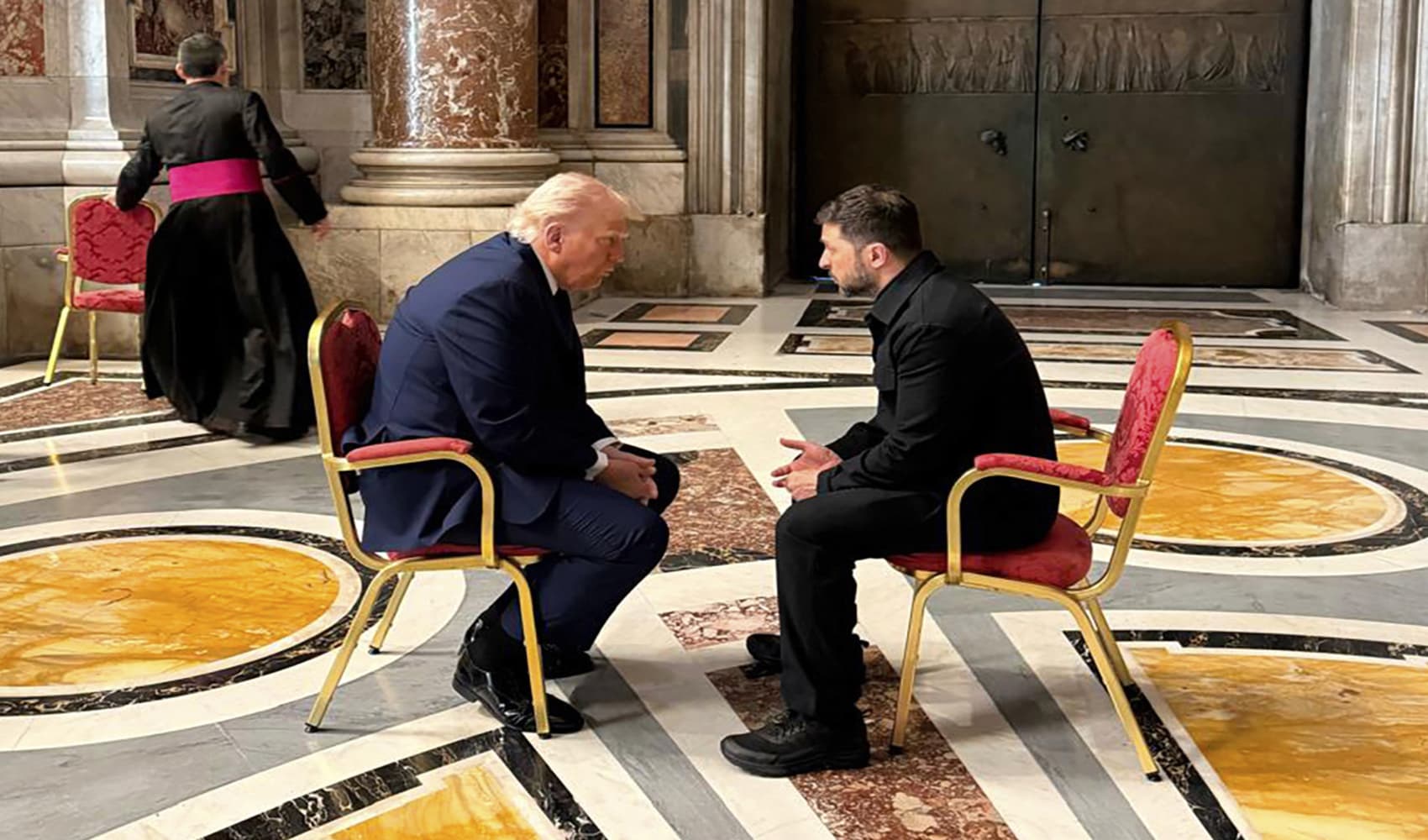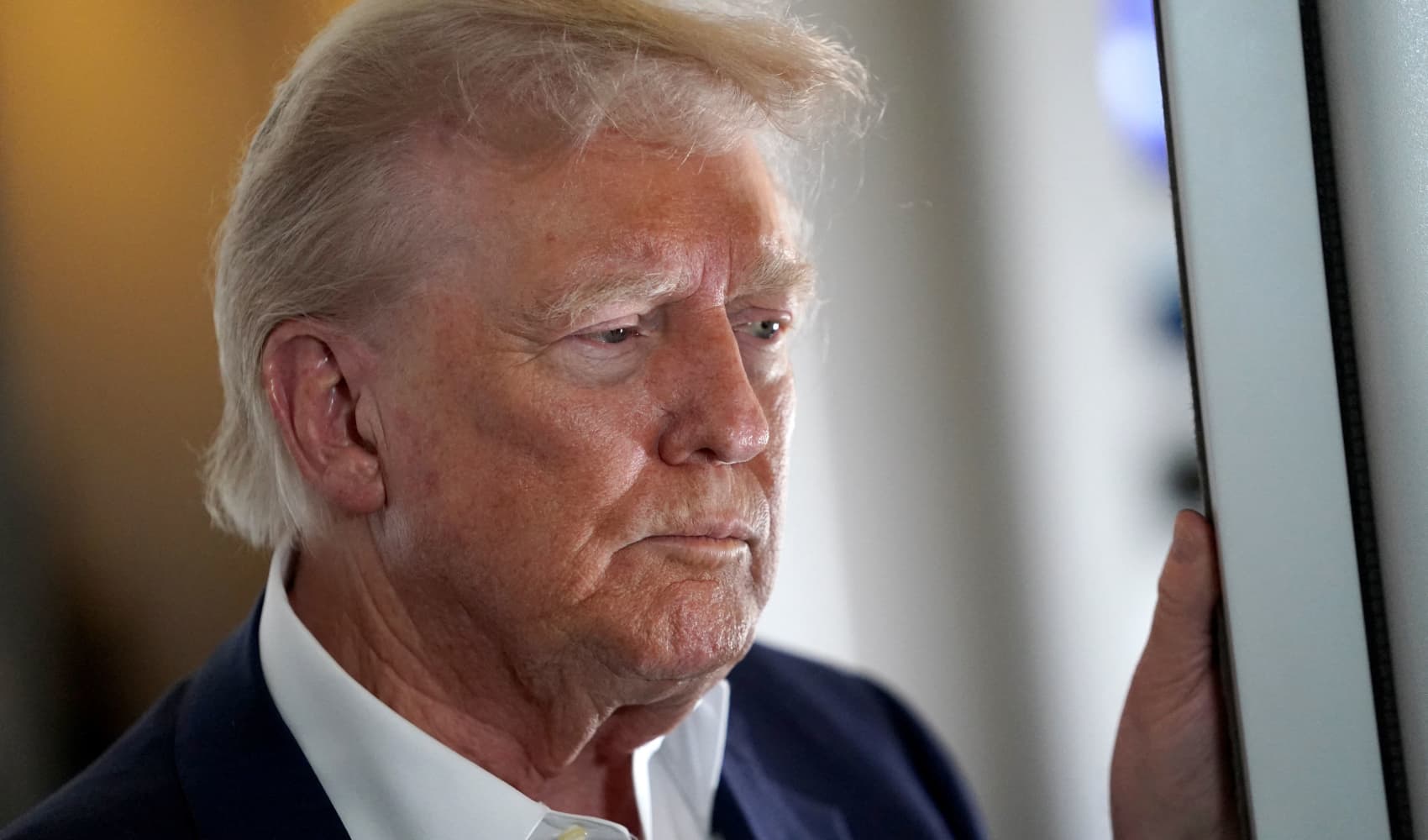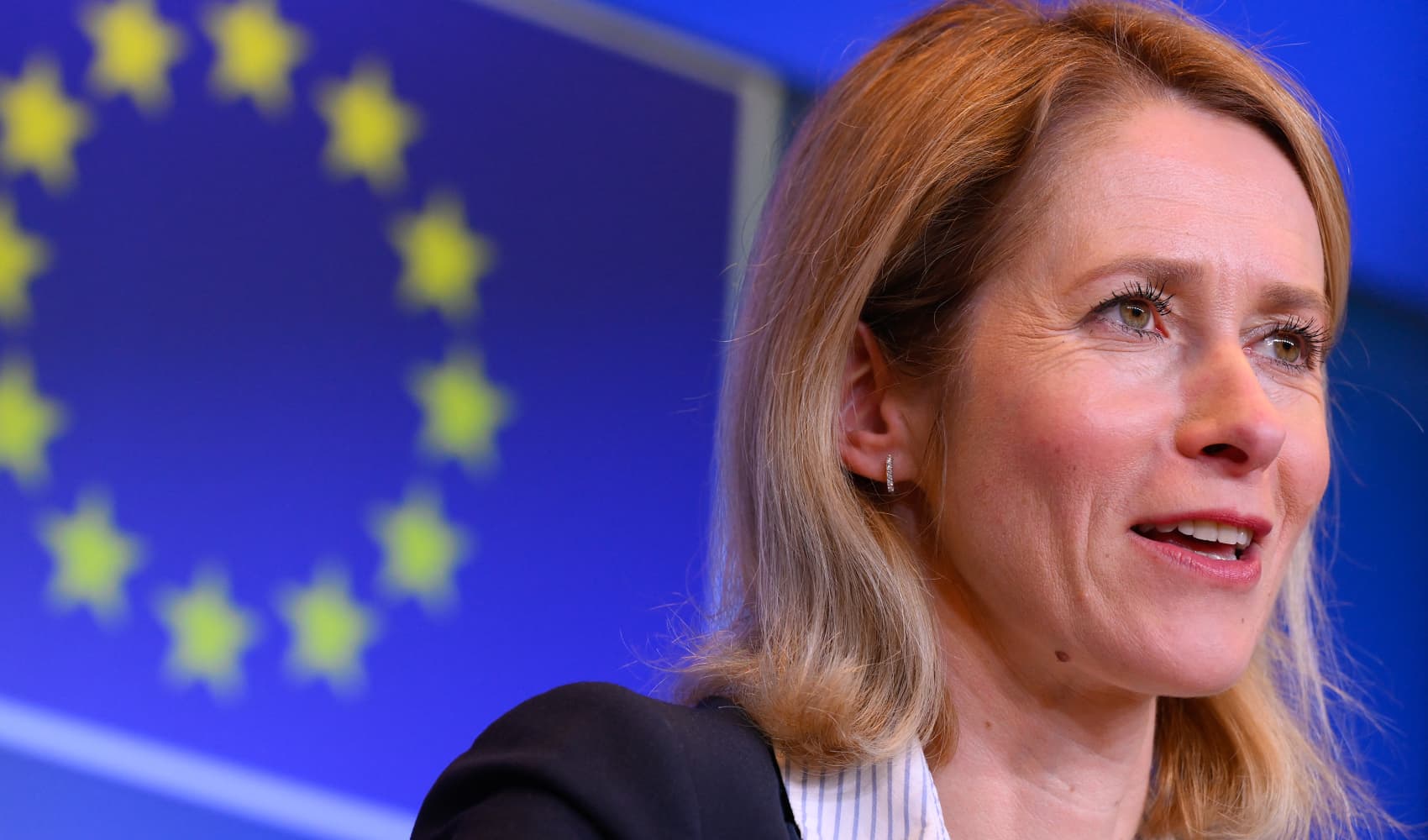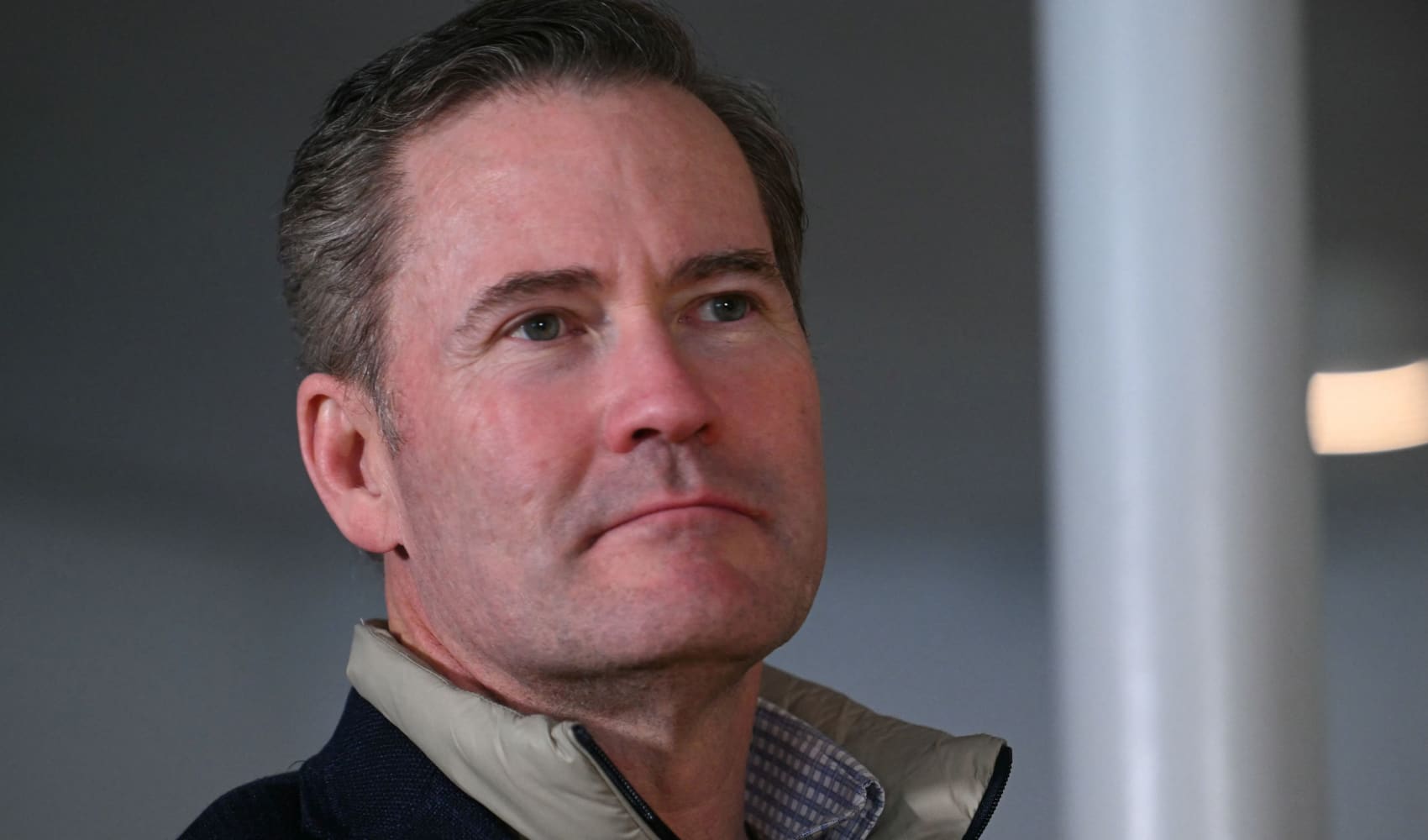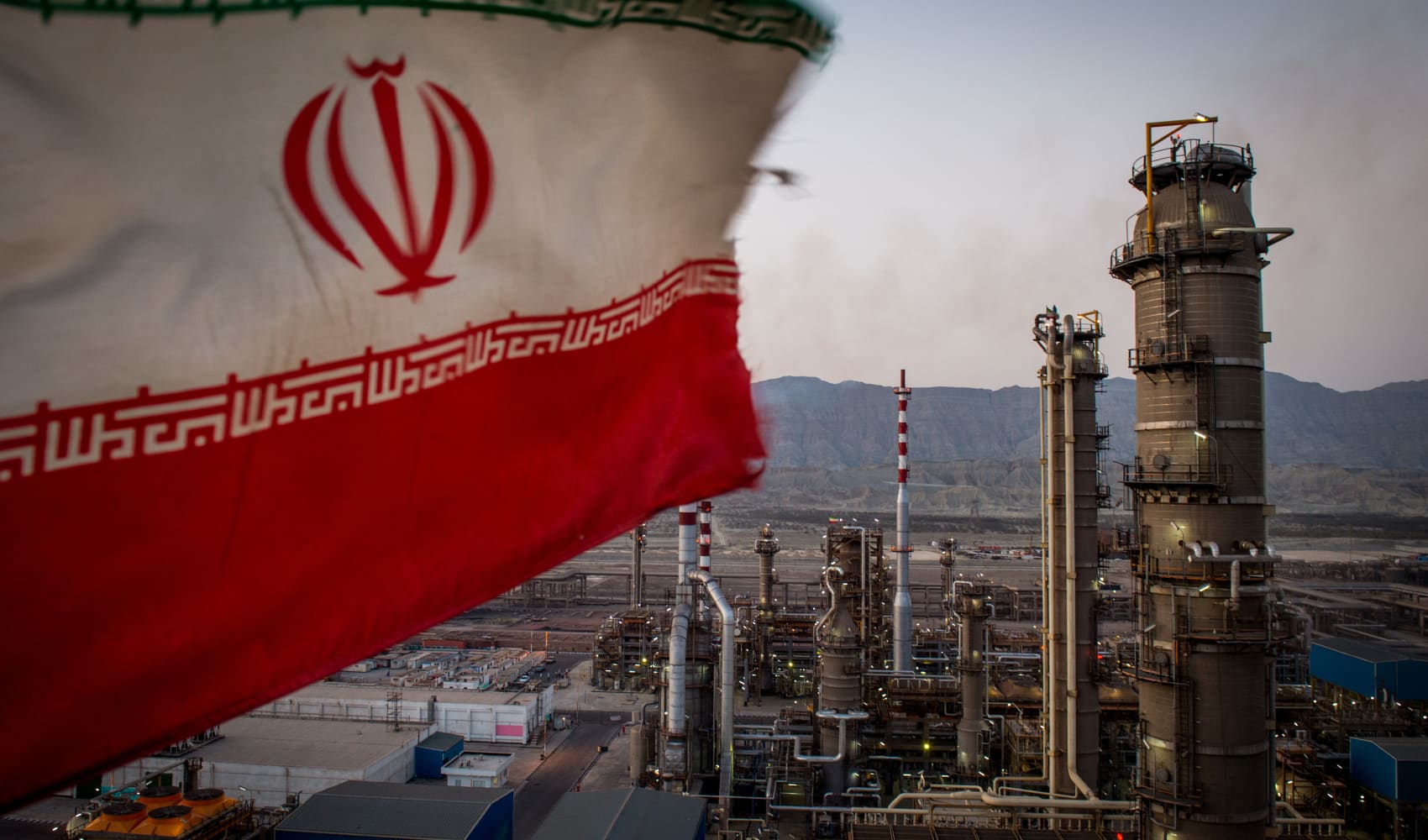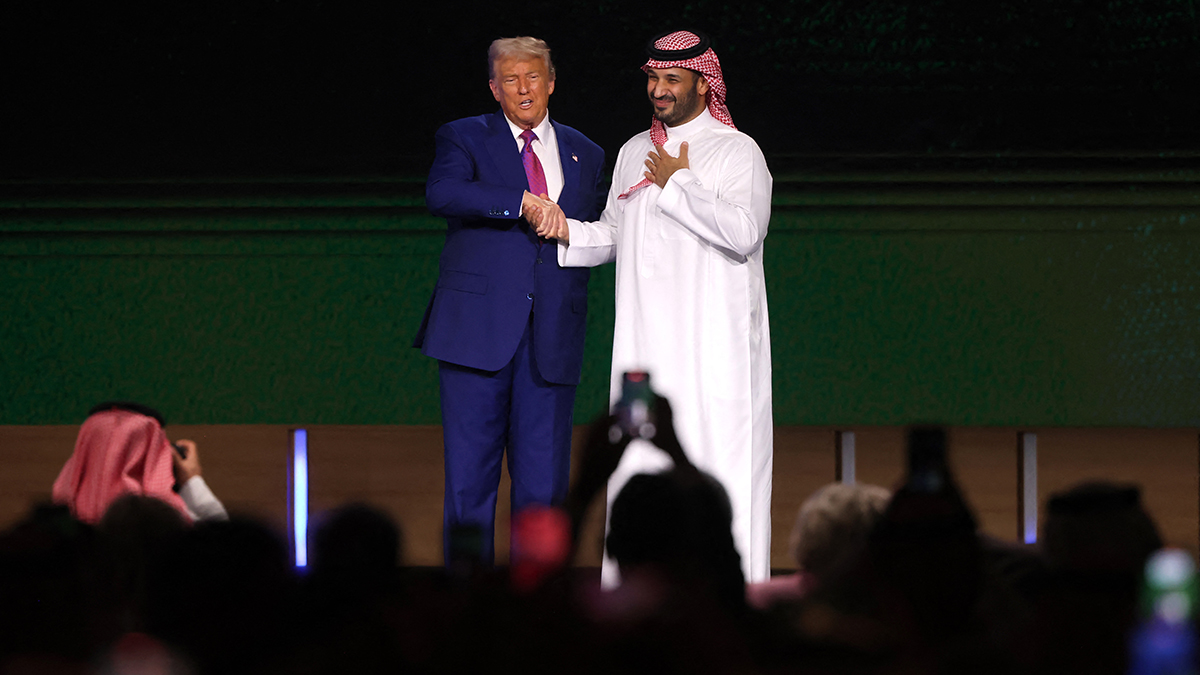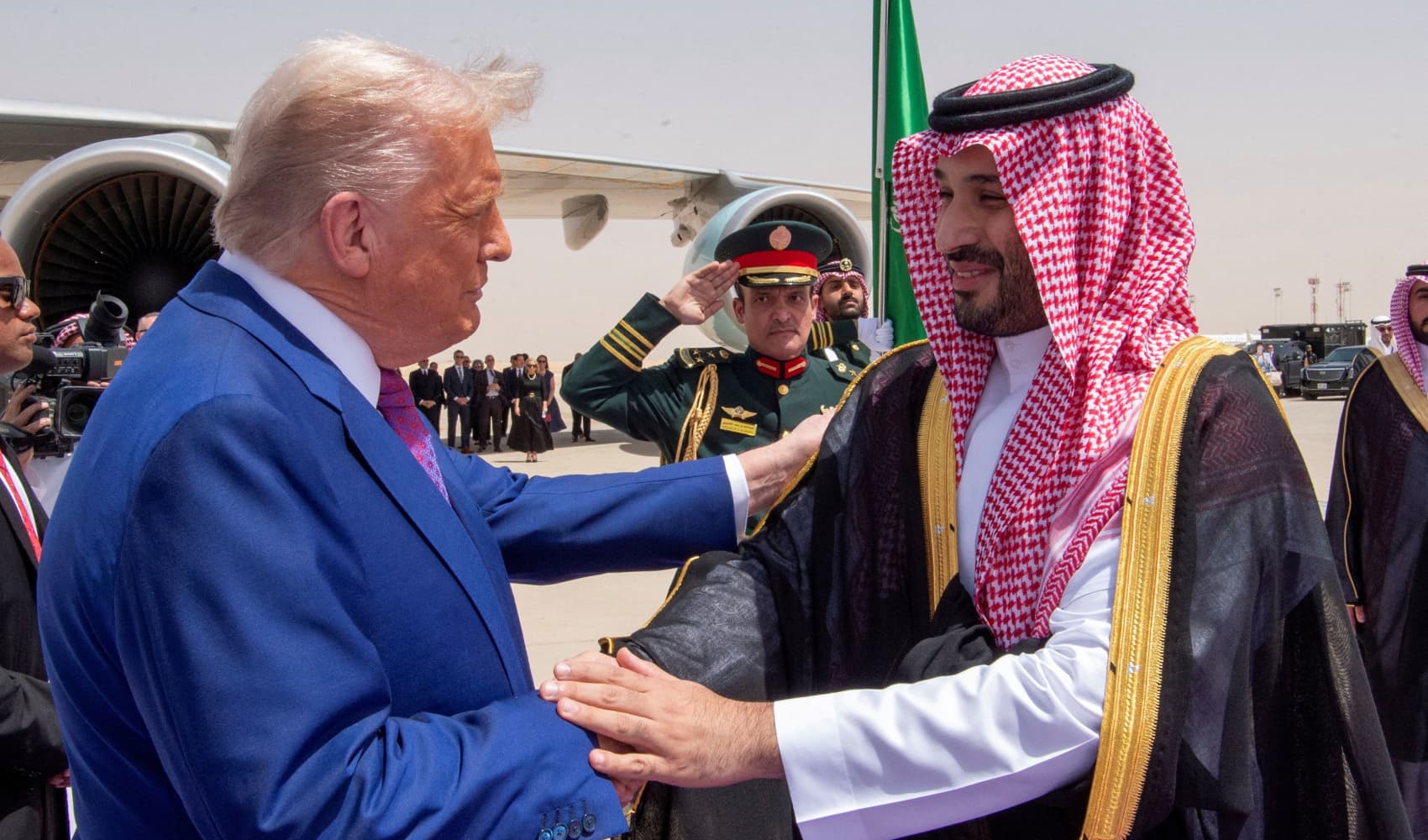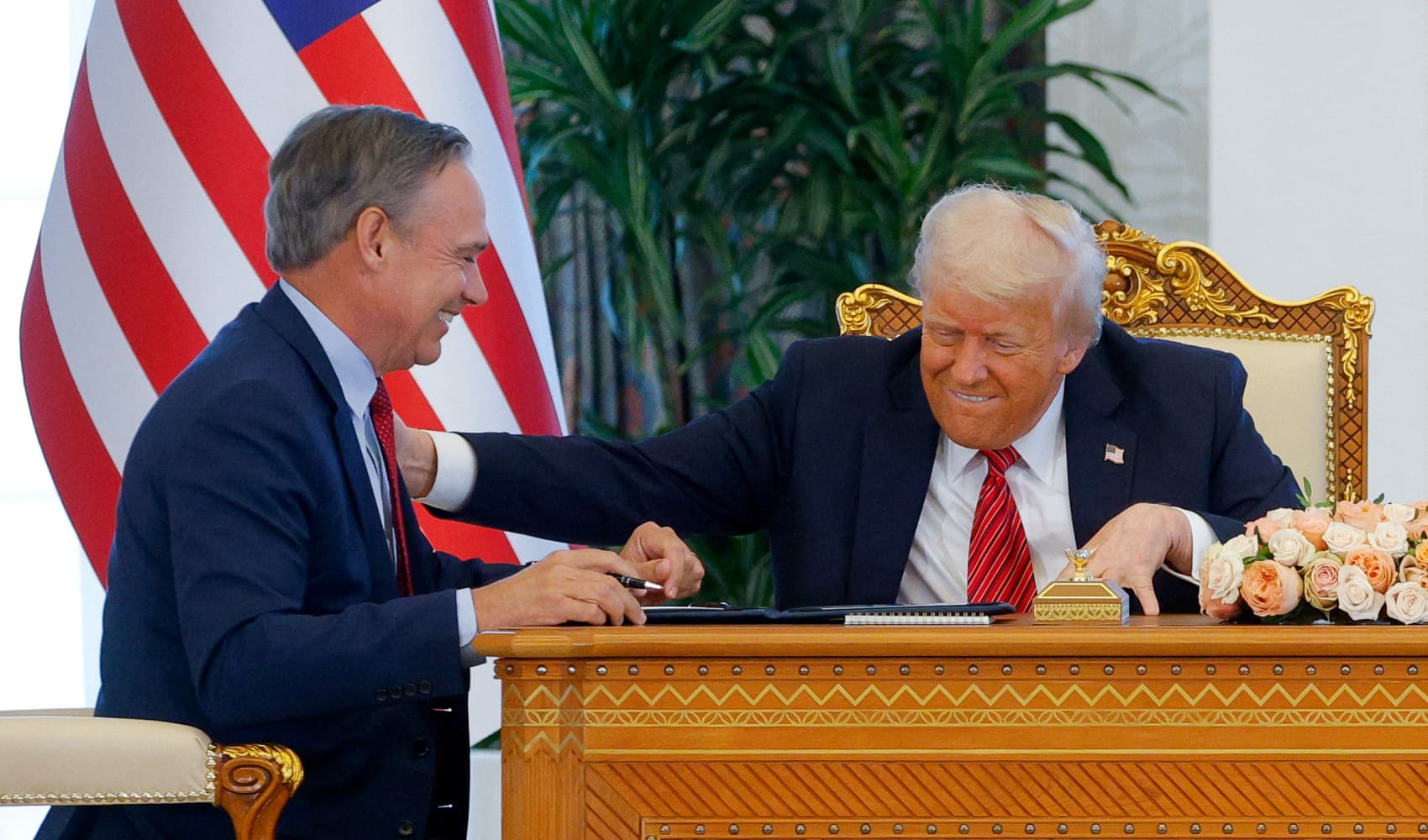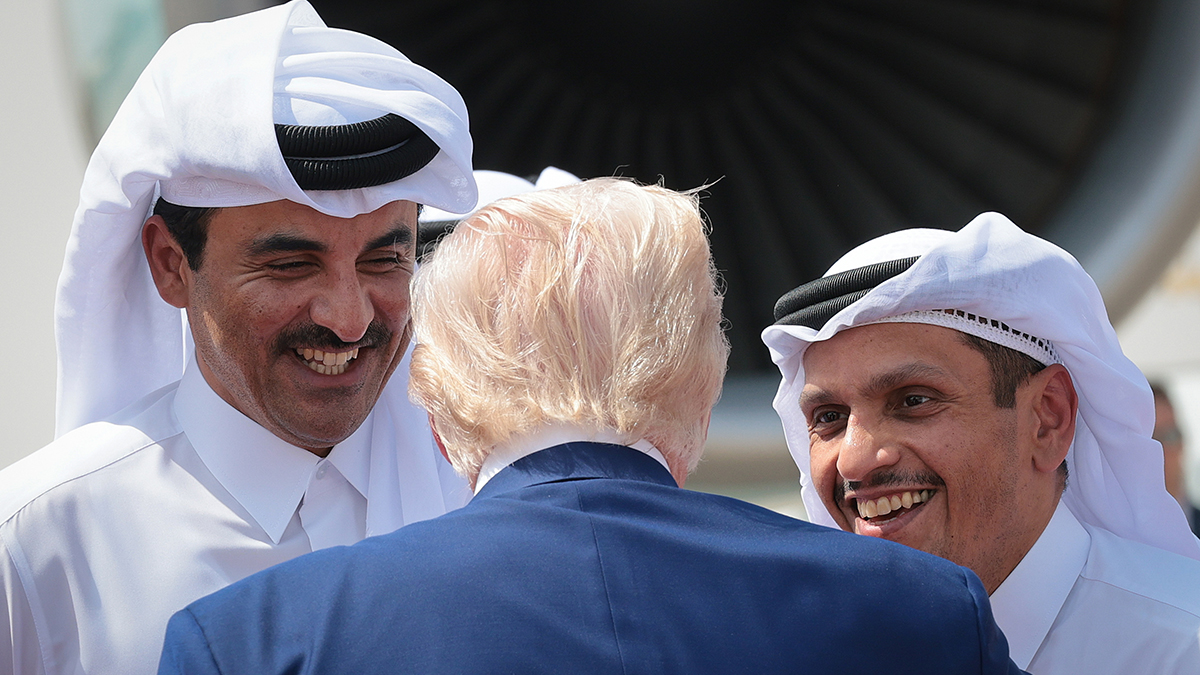Trump Floats Russia Sanctions After Zelenskyy Meeting Blowup
Trump Floats Russia Sanctions After Tense Zelenskyy Meeting
Introduction: A New Chapter in US-Ukraine Relations?
The world stage is never short on drama, is it? And the latest act features none other than former U.S. President Donald Trump, who’s once again making headlines with his approach to Russia and Ukraine. Just when you thought things were settling down, Trump throws another curveball, suggesting potentially tougher sanctions on Moscow. But what's really going on? And what does it mean for the ongoing conflict in Ukraine?
This all unfolds after a somewhat surprising meeting between Trump and Ukrainian President Volodymyr Zelenskyy in Rome. Surprising because their last encounter, back in the Oval Office, wasn’t exactly a friendly tea party. We’re talking raised voices, strained smiles, and enough tension to cut with a knife. So, what changed? Let's dive in.
Trump's Sanction Speculation: A Change of Heart?
It all started with a social media post. You know, the usual. Trump floated the idea of “stronger sanctions” on Russia, questioning whether Vladimir Putin truly wants to "stop the war" in Ukraine. Is this a genuine shift in Trump’s stance towards Russia, or is it just political maneuvering? Only time will tell, but the implications are significant.
Decoding Trump's Message: What Does He Really Mean?
Trying to decipher Trump's tweets is an art form in itself. Is he genuinely concerned about the situation in Ukraine? Is he trying to reassert his influence on the world stage? Or is this simply a way to grab headlines and stay relevant? It's a complex puzzle, and everyone seems to have their own piece of the solution.
Perhaps he’s gauging public opinion, testing the waters to see if a tougher stance against Russia would be politically advantageous. Maybe he even sees an opportunity to broker a deal, positioning himself as the ultimate peacemaker. Whatever the reason, Trump's words carry weight, and they are undoubtedly being scrutinized in both Moscow and Kyiv.
The Rome Meeting: A Thaw in Relations?
Before the sanctions speculation, there was the meeting in Rome. Trump and Zelenskyy sat down for their first face-to-face since that infamous Oval Office incident. The White House described it as a “very productive discussion.” But what does that actually mean? Were apologies exchanged? Did they find common ground? Or was it just a carefully orchestrated photo-op?
Behind Closed Doors: What Was Really Said?
The details of their conversation remain shrouded in secrecy. But we can speculate, can’t we? Did Zelenskyy try to persuade Trump to take a tougher stance against Russia? Did Trump offer any concrete solutions or promises of support? We can only imagine the dynamics at play between these two strong-willed leaders.
It's crucial to remember the history between them. The Oval Office encounter left a lasting impression, and it's unlikely that either man has forgotten it. Rebuilding trust, if that's even possible, will require more than just a single meeting.
Russia-Ukraine Deal: Is a Breakthrough Imminent?
Adding another layer to the intrigue, Trump claimed that Russia and Ukraine are “very close to a deal.” That’s a pretty bold statement, isn’t it? Is there any real evidence to back it up? Or is Trump simply exaggerating, trying to paint a more optimistic picture of the situation?
Sources and Skepticism: Where's the Proof?
So far, there's no independent confirmation of Trump's claim. Other world leaders and diplomats haven’t echoed his sentiment. This raises the question: where is he getting his information? Is he relying on reliable sources, or is this just wishful thinking?
Given the complexities of the conflict, a comprehensive peace deal seems unlikely in the short term. But who knows? Maybe Trump has some secret knowledge or connections that could pave the way for a breakthrough. Let's hope that this is more than just talk.
Sanctions: A Double-Edged Sword?
Sanctions are a common tool in international relations. But are they always effective? While they can put economic pressure on a country, they can also have unintended consequences. They can hurt ordinary citizens, destabilize the economy, and even backfire, strengthening the resolve of the targeted regime.
The Impact on Russia: Will Sanctions Work?
Russia has already been subject to numerous sanctions since the start of the conflict in Ukraine. Have they had the desired effect? Some argue that they have weakened the Russian economy, while others contend that they have simply made Russia more self-reliant and resistant to external pressure.
Introducing even tougher sanctions would be a significant escalation. It could further isolate Russia from the global economy, but it could also deepen the divide between the West and Russia. Weighing the potential costs and benefits is crucial before taking such a step.
Zelenskyy's Perspective: Navigating a Complex Landscape
President Zelenskyy is walking a tightrope. He needs to secure support from the international community, maintain his country's morale, and navigate the complexities of dealing with both Russia and the West. It's a daunting task, and he faces constant pressure from all sides.
Seeking Support: Ukraine's Diplomatic Efforts
Zelenskyy has been actively engaged in diplomatic efforts, seeking support from world leaders. His meeting with Trump in Rome was undoubtedly part of that effort. He needs to convince leaders like Trump that supporting Ukraine is in their own best interests, not just a matter of moral obligation.
Ukraine's future depends on its ability to secure long-term support from its allies. This means not just financial aid, but also military assistance and diplomatic pressure on Russia.
The Future of US-Russia Relations: Uncertainty Looms
Trump's potential return to the White House adds another layer of uncertainty to the already complex relationship between the US and Russia. His unpredictable approach to foreign policy could lead to dramatic shifts in the international landscape.
Trump's Potential Return: What's at Stake?
If Trump were to win the next presidential election, it's difficult to predict what his foreign policy priorities would be. Would he seek a rapprochement with Russia? Would he continue to support Ukraine? Or would he pursue a completely different course of action?
The stakes are high. The future of Ukraine, the balance of power in Europe, and the stability of the global order could all be affected by Trump's decisions.
International Reactions: A World on Edge
Trump's statements and actions are being closely watched by leaders around the world. Allies and adversaries alike are trying to anticipate his next move and prepare for the potential consequences.
Global Implications: A Shifting Geopolitical Landscape
The conflict in Ukraine has already had a profound impact on the global geopolitical landscape. It has strained relations between the West and Russia, triggered a global energy crisis, and raised concerns about the future of international security.
Trump's involvement in the situation could further exacerbate these tensions. His unpredictable actions could disrupt existing alliances and create new uncertainties in the international arena.
The Power of Perception: Shaping the Narrative
In the age of social media, perception is often as important as reality. Trump understands this better than most. He knows how to use social media to shape the narrative and influence public opinion.
Social Media Influence: Trump's Communication Strategy
Trump's social media posts are carefully crafted to appeal to his supporters and to generate media attention. He uses simple language, strong emotions, and provocative statements to cut through the noise and get his message across.
His ability to control the narrative is a powerful tool, but it also comes with risks. Misinformation and propaganda can spread rapidly online, and it can be difficult to separate fact from fiction.
Ukraine's Resilience: A Nation Under Pressure
Despite the challenges it faces, Ukraine has shown remarkable resilience. The Ukrainian people have demonstrated their determination to defend their country and their independence.
National Identity: Strength in Unity
The conflict in Ukraine has strengthened the country's national identity. Ukrainians from all walks of life have come together to resist the Russian aggression.
Their courage and determination have inspired people around the world and have shown that even a small country can stand up to a much larger and more powerful adversary.
The Human Cost: A Tragedy Unfolding
The conflict in Ukraine has had a devastating human cost. Millions of people have been displaced from their homes, and thousands have been killed or injured. The suffering of the Ukrainian people is immense.
A Call for Peace: Ending the Conflict
The ultimate goal must be to end the conflict and bring peace to Ukraine. This will require a concerted effort from the international community, including diplomatic pressure on Russia and humanitarian assistance to Ukraine.
The future of Ukraine, and indeed the future of Europe, depends on finding a peaceful resolution to this conflict.
Geopolitical Chess: A Game of Strategy
The situation in Ukraine is a complex game of geopolitical chess. Each player is trying to anticipate the moves of their opponents and to position themselves for advantage.
Moves and Countermoves: Who's Winning?
It's difficult to say who is winning the geopolitical chess game. Russia has made territorial gains in Ukraine, but it has also suffered economic losses and international isolation.
The West has provided support to Ukraine, but it has also struggled to maintain unity and to deter further Russian aggression.
The Role of Diplomacy: Finding a Path Forward
Diplomacy is essential for finding a path forward in the conflict in Ukraine. Negotiations between Russia and Ukraine, with the support of international mediators, are necessary to reach a lasting peace agreement.
Negotiation Strategies: Seeking Common Ground
Negotiations will be difficult, but they are essential. Both sides will need to be willing to compromise and to seek common ground.
The future of Ukraine, and the future of Europe, depends on finding a diplomatic solution to this conflict.
Economic Repercussions: A Global Impact
The conflict in Ukraine has had significant economic repercussions around the world. It has disrupted global supply chains, driven up energy prices, and increased inflation.
Global Markets: Adapting to Change
Global markets are adapting to the changing economic landscape. Businesses are finding new suppliers, consumers are adjusting their spending habits, and governments are implementing measures to mitigate the impact of the crisis.
The long-term economic consequences of the conflict are still uncertain, but it is clear that it will have a lasting impact on the global economy.
Conclusion: The Uncertain Path Ahead
Trump's recent statements and meeting with Zelenskyy have added another layer of complexity to the already fraught situation in Ukraine. Whether his floated sanctions become reality, and whether his claims of a nearing deal hold water, remain to be seen. One thing is certain: the world is watching, and the stakes are incredibly high. The future of Ukraine, US-Russia relations, and the stability of the international order all hang in the balance.
Frequently Asked Questions
- What was the reason for the shouting match between Trump and Zelenskyy in the Oval Office?
Reports suggest the tension stemmed from Trump's withholding of military aid to Ukraine while allegedly pressuring Zelenskyy to investigate Joe Biden's son, Hunter Biden.
- Are sanctions the most effective way to address Russia's aggression?
Sanctions can be a powerful tool, but their effectiveness is debated. They can pressure Russia economically, but also harm its citizens and potentially strengthen Putin's resolve. It's a complex equation.
- Is a peace deal between Russia and Ukraine likely in the near future?
Despite Trump's claims, a comprehensive peace deal seems unlikely at this time. Significant disagreements and ongoing conflict make negotiations extremely challenging.
- What is the United States' main objective in supporting Ukraine?
The US aims to support Ukraine's sovereignty, territorial integrity, and democratic institutions. It also seeks to deter further Russian aggression and maintain stability in Europe.
- How might Trump's potential return to the presidency affect US-Ukraine relations?
It's uncertain. Trump's foreign policy has been unpredictable, so it's difficult to gauge how he would approach the conflict and US relations with both Ukraine and Russia.
